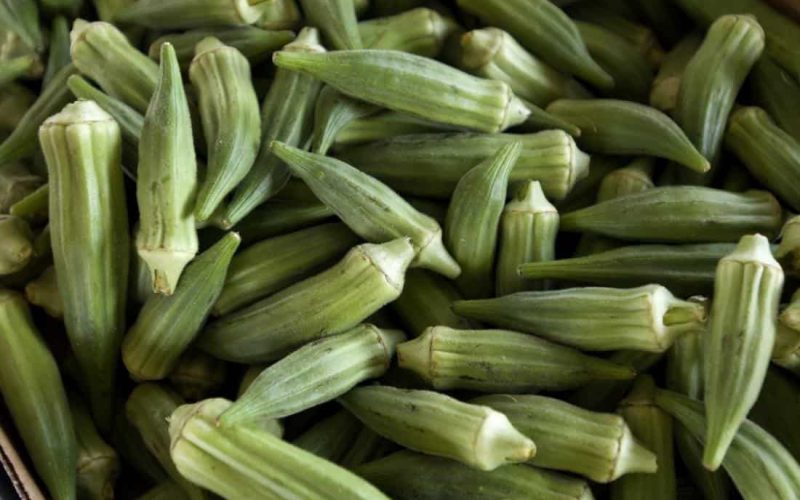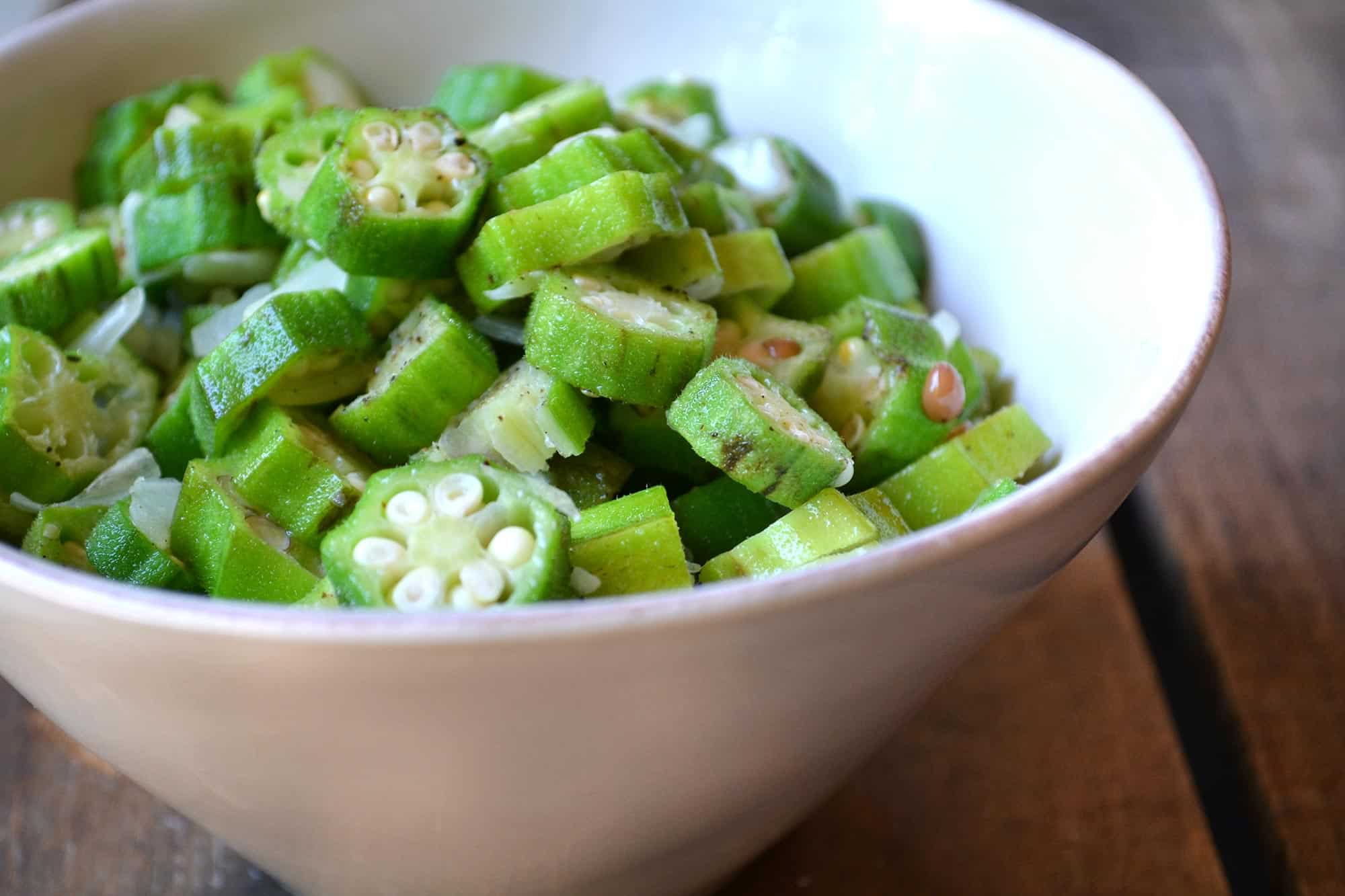As a child growing up in an African home, okra was one of the foods that we regularly had to eat. while a lot of people of consume this plant in different ways, not everyone is aware of the fantastic benefits it holds, or even the fact that okra is considered a fruit and not a vegetable.
Yes, you read that correctly! Okra is a fruit, and it can be used in different ways in the kitchen. Also, it comes with so many health benefits that once you discover them, you would make okra one of the most consumed plant in your home.
Abelmoschus esculentus, or Hibiscus esculentus popularly known as okra is a plant that belongs to the Mallow family (Malvaceae). Okra grows really tall and produces a large yellow flower and some green pods that usually grow as long as 4 to 10 inches in length.
The okra plant grows in warm climates like in South America, West Africa, Southern United States, and the Middle East.
Technically okra is a fruit however it is often eaten as a vegetable because of its taste and texture it gives to your food when cooked. People often use okra in soups, stews, and even porridges. Some people prefer that pickled, fried, and even roasted so you can’t get bored when it comes to okra.
Okra is an excellent source of vitamins and minerals as well as fibres. While people opt for fruits like oranges and guava for their daily vitamin C requirements, okra gives you enough of vitamin C, and I mean as much as 40% of your recommended daily vitamin C intake.
As you already know, vitamin C is very essential when it comes to boosting your immune system and staying healthy. Okra also contains a high level of vitamin K that will help you grow strong and healthy bones, as well as improve blood clotting.
Vitamin A is also one of the many nutrients found in okra and vitamin A is just perfect for your vision and also to help prevent free radicals. The minerals found in okra include folate, potassium, magnesium, calcium, and zinc.
What magnesium does is to regulate blood pressure and blood sugar levels potassium on the other hand calcium, and potassium improves bone health and muscle function.
Folate is vital during pregnancy, and it prevents anaemia and improves brain functions. Iron increases the health of your blood. Zinc strengthens the immune system and protects DNA.
Dietary fibre promotes the digestion of foods, and the antioxidants it contains are just perfect for helping get rid of toxins.
Below are some of the many benefits of okra
- Okra reduces blood glucose levels and prevents blood sugar spikes after every meal.
- Okra has abilities to prevent liver diseases and also prevent your liver from getting damaged.
- If you need a natural energy boost, okra is the perfect one for you as it boosts energy levels and also reduces fatigue.
- Okra is an excellent treatment for anxiety and depression, and it also has the ability to improve your mood and relieve stress.
- Okra has very potent anticancer properties which can reduce the size of a tumour, most notably breast and skin cancer cells.
- Okra is a beautiful fruit for treating type 2 diabetes it lowers glucose level and reduces blood sugar level.
- The high amount of dietary fibre contained in okra helps you to feel full quickly and also helps with weight loss. So if you’re looking to lose weight and still want to enjoy spicy food, okra is the perfect option for you.
- Okra is not a fatty food however it contains the right nutrients to help lower cholesterol levels.
- Okra releases a gelatinous fluid which helps to treat peptic ulcers, gastritis, and stomach aches.
- With okra, you can treats asthma symptoms and many other respiratory conditions as well as cleanse the lungs.
Is okra safe to consume?
Generally speaking, okra is safe to consume by any gender and by people of any age group. However, if you are on diabetes medication, you must avoid eating okra as it may react with the medicines you are taking.
You should also avoid consuming okra if you suffer from gastrointestinal problems, kidney stones, vein thrombosis and blood clotting.
Whenever you go shopping for vegetables, make sure that you look for bright green Okras and avoid the ones that are hard, cut, or have spots. To check for fresh okra, push back the pointed end with your thumb and see if it breaks. If it does, then it is fresh. If it doesn’t break then, it is stale.
You can eat the slightly immature okra fruit and the freshly cut ones if you decide not to cook them it is OK to eat them raw after all they are fruits.
If you get fresh okra and you want to store them for later use you can put them in a brown bag and put in your refrigerator for no more than two to three days. However, if you do not want to store them that way you have the option of buying dried or canned okra.
Okra water is one of the healthiest drinks in the world, but not everyone knows it. If you are wondering how to make this drink, the recipe and procedure are just right below this article.
Wash four medium sized okra and cut them in half. Cut off the ends and poke the flesh with a fork to create holes. Soak your cut okras in a glass of water and leave overnight. By the next morning, squeeze out the gooey juice and drink.
You can save this healthy drink in your refrigerator for as long as two days and even share with your kids. There are so many fantastic okra recipes that you can try we would love to share some here, but we have a separate article with different okra recipes that you would find amazing.
We hope that you enjoyed this article, please do not hesitate to communicate with us by leaving a comment in the comment section provided below we look forward to hearing from you









